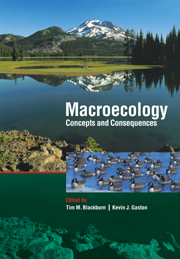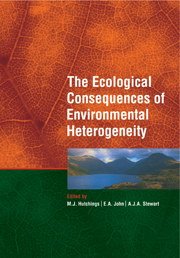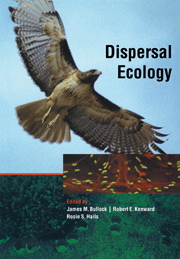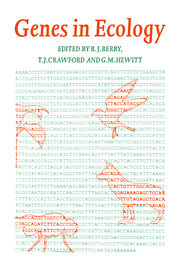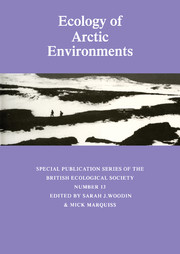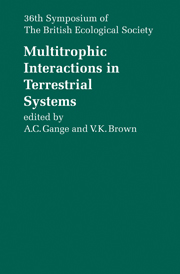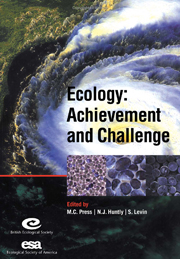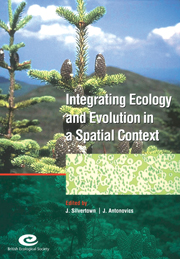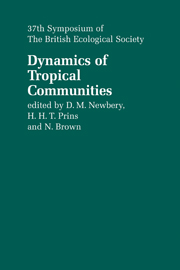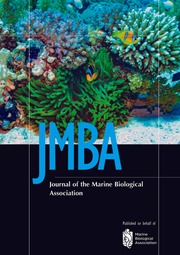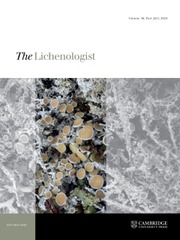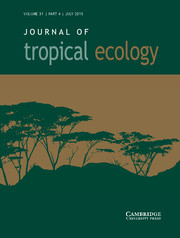Macroecology: Concepts and Consequences
43rd Symposium of the British Ecological Society
$104.00 (P)
Part of Symposia of the British Ecological Society
- Editors:
- Tim M. Blackburn, University of Birmingham
- Kevin J. Gaston, University of Sheffield
- Date Published: February 2004
- availability: Available
- format: Paperback
- isbn: 9780521549325
$
104.00
(P)
Paperback
Looking for an examination copy?
This title is not currently available for examination. However, if you are interested in the title for your course we can consider offering an examination copy. To register your interest please contact [email protected] providing details of the course you are teaching.
-
Major researchers in the field present overviews of current thinking about the form and determinants of macroecological patterns. Each section presents different viewpoints on the answer to a key question in macroecology: Why are most species rare and small-bodied, and restricted in their distribution?
Read more- Deals with a topic of wide-ranging importance in ecology
- Offers an overview of current thinking about the development of macroecological patterns
- Chapters written by leading international authorities
Reviews & endorsements
'… this new book presents for the first time a comprehensive overview which summarizes a plethora of views and applications. … The volume is written for a wide audience ranging from advanced students to established researchers. … It covers a wide range of ecological problems presenting theoretical models as well as specific applications in different research disciplines. … the volume provides an excellent overview of the cutting edge in macroecological research. … I recommend it to everyone interested in large-scale ecology.' Basic and Applied Ecology
See more reviews'The book … presents macroecology at its broadest sense, with achievements that have emerged in various biological disciplines, and which thus can be treated under this label because they greatly contributed to answers of … major ecological questions … It is therefore an extremely useful reading not only for those interested in macroecology itself, but for everybody who wants to know which big ecological ideas are now in the air.' David Storch, Charles University, Czech Republic
Customer reviews
Not yet reviewed
Be the first to review
Review was not posted due to profanity
×Product details
- Date Published: February 2004
- format: Paperback
- isbn: 9780521549325
- length: 464 pages
- dimensions: 248 x 171 x 25 mm
- weight: 1.022kg
- contains: 136 b/w illus.
- availability: Available
Table of Contents
1. Introduction: why Macroecology? Tim M. Blackburn and Kevin J. Gaston
Part I. Why Are Some Taxa More Diverse Than Others?:
2. Evolutionary analysis of species richness patterns in aquatic beetles: why macroecology needs a historical perspective Alfried P. Vogler and Ignacio Ribera
3. The unified phenomenological theory of biodiversity Sean Nee
Part II. Why Are Most Species Rare?:
4. The neutral theory of biodiversity and biogeography, and beyond Stephen P. Hubbell and Jeffrey Lake
5. Breaking the stick in space: of niche models, metacommunities and patterns in the relative abundance of species Pablo A. Marquet, Juan E. Keymer and Hernán Cofré
Part III. Why Are There More Species in the Tropics?:
6. How to reject the area hypothesis of latitudinal gradients Michael L. Rosenzweig
7. Climatic–energetic explanations of diversity: a macroscopic perspective Robert J. Whittaker, Katherine J. Willis and Richard Field
8. The importance of historical processes in global patterns of diversity Andrew Clarke and J. Alistair Crame
Part IV. Why are More Species Small-Bodied?:
9. Why are most species small-bodied? A phylogenetic view Andy Purvis, C. David L. Orme and Konrad Dolphin
10. Adaptive diversification of body size: the roles of physical constraint, energetics and natural selection Brian A. Maurer
Part V. Why are some species more likely to go extinct?:
11. Life histories and extinction risk John D. Reynolds
12. Routes to extinction Bernt-Erik Sæther and Steinar Engen
Part VI. Why Aren't Species More Widely Distributed?:
13. Why aren't species more widely distributed? Physiological and environmental limits F. Ian Woodward and C. K. Kelly
14. Macroecology and microecology: linking large-scale patterns of abundance to population processes Andrew R. Watkinson, Jennifer A. Gill and Robert P. Freckleton
15. Genetics and the boundaries of species' distributions R. K. Butlin, J. R. Bridle and M. Kawata
Part VII. Why Are There Interspecific Allometries?:
16. Intraspecific body size optimisation produces interspecific allometries J. Kozowski, M. Konarzewski and A. T. Gawelczyk
17. Scaling the macroecological, and evolutionary implications of size and metabolism within and across plant taxa Brian J. Enquist
Part VIII. Why is Macroecology Important?:
18. Macroecology and conservation biology Kevin J. Gaston and Tim M. Blackburn
19. Evolutionary macroecology and the fossil record David Jablonski, Kaustuv Roy and James W. Valentine
20. Comparative methods for adaptive radiations Robert P. Freckleton, M. Pagel and Paul H. Harvey
21. The next step in macroecology: from general empirical patterns to universal ecological laws James H. Brown, James F. Gillooly, Geoffrey B. West and Van M. Savage.
Sorry, this resource is locked
Please register or sign in to request access. If you are having problems accessing these resources please email [email protected]
Register Sign in» Proceed
You are now leaving the Cambridge University Press website. Your eBook purchase and download will be completed by our partner www.ebooks.com. Please see the permission section of the www.ebooks.com catalogue page for details of the print & copy limits on our eBooks.
Continue ×Are you sure you want to delete your account?
This cannot be undone.
Thank you for your feedback which will help us improve our service.
If you requested a response, we will make sure to get back to you shortly.
×
